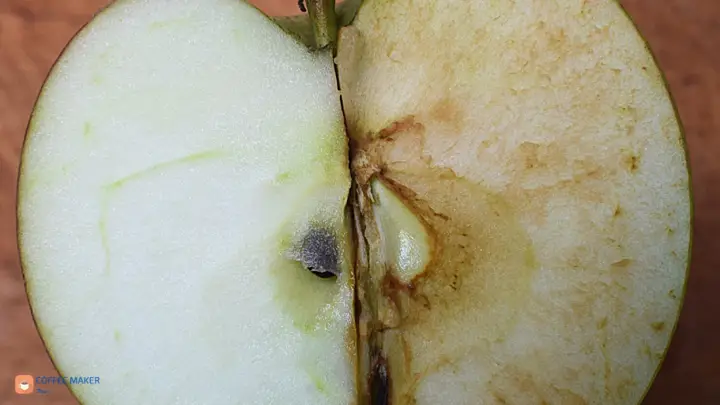We all love a hot, freshly brewed coffee, at that point when all the aromas escape from the cup and flood our sense of smell. With every sip of hot coffee, we can appreciate all the notes and flavours on our palate.
However, we cannot always enjoy freshly brewed coffee, and although we know it is not ideal, many of us drink it at room temperature hours after it has been extracted. But how long is it reasonable or healthy to do this?
How long brewed coffee lasts at room temperature is subjective
In researching this issue, I have found a consensus on how long coffee beans can be roasted before we consume the coffee extracted from them.
But nothing is written about the time that can pass from when we brew coffee to when we drink it. Maybe because it seems logical that coffee is drunk within a few minutes of brewing. Who would want to wait hours to drink it?
I have read of people who drink coffee up to several days after it has been brewed, but also others who do not drink it more than half an hour after it has been brewed.
After doing my own experiment, I conclude that for up to 3 hours, the coffee, although it has lost many properties, is still drinkable. After 3 hours, it starts to generate undesirable and unappetising flavours.
Why does brewed coffee spoil over time?
Although coffee is mostly water, and most of it does not spoil, a percentage of the coffee contains compounds, oils and acids extracted from the bean. These few compounds begin to spoil and cause the whole thing to taste bad.
In addition, coffee is a hot, liquid product with different organic compounds, which makes it a perfect place for bacteria to grow. Although this will largely depend on whether you have left the coffee uncovered and at room temperature on your table or desk.
Is coffee anti-bacterial?
There is no shortage of studies claiming that caffeine and coffee are antibacterial, even capable of killing the tricky E. coli, so how is it possible that bacteria can appear in your cold cup of coffee?
A recent scientific study by the University of Valencia (Spain) demonstrated the presence of bacterial colonies in drip trays of Nespresso coffee machines. These bacteria are, therefore, resistant to caffeine and coffee.
Our results reveal the existence of a varied bacterial community in all the machines sampled and a rapid colonisation process of the coffee leach. (
Cristina Vilanova,
Alba Iglesias &
Manuel Porcar
Of course, this study refers to drip trays exposed to the elements for days or weeks before they are cleaned. So this example only serves to prove that bacteria can grow in the presence of coffee.
I think we all agree that eating or drinking food that has been there for up to 4 or 5 hours is OK. However, we all start to take more precautions when discussing days. I think there is a kind of unwritten law that any food that spends overnight outdoors should not be put in your mouth.
Although I must confess that I have drunk coffee prepared the day before on many occasions, nothing has ever happened to me, at least not yet. So in my experience, drinking brewed coffee the day before doesn’t make you sick.
At what point does brewed coffee start to taste bad?
We have already said many times on this website that the ideal temperature for drinking coffee is between 50 and 60 degrees Celsius. This is when the coffee has the right acidity and the perfect sweetness without bitterness.
But this high temperature favours the taste and allows the aromatic molecules to vibrate quickly and escape from the coffee. This combination of taste and smell makes our coffee taste delicious.
So, when a coffee cools down, the flavour remains, but the aromatic molecules remain static, so they will not enhance the flavour. Because coffee is not only flavour but, to a large extent, also aroma.
This is when you wonder what happens to cold brew… it’s not all bad when coffee cools down, as the lack of aroma can accentuate the sweetness of the coffee and other flavours hidden by the aroma.
However, this only happens with high-quality coffees with good extraction. Otherwise, a low-quality coffee will be undrinkable when it cools down.
How does oxidation affect coffee?
I will not talk about food oxidation here, but we have all seen what happens to a piece of apple when it is left in the air. When our coffee starts to oxidise, the acidity is reduced and the ph increases, resulting in a bitter, not fresh and rancid taste.

How long a freshly brewed coffee lasts based on my experience
The experiment I conducted for this article is very simple, and I invite you to try it yourself:
- I brewed coffee with my Hario V60 coffee machine and let it cool down to room temperature.
- Then I tasted it every 15 minutes, taking a good sip and trying to appreciate the full flavour of the coffee.
- I tasted the coffee for more than 5 hours but noticed a radical change after three and a half hours. After that, the taste was very bitter and plain.
Conclusion
I think there is no problem with drinking coffee even a day after brewing, as I have done it myself, and nothing has ever happened to me. But it is better to reheat it, so the coffee recovers some of its flavours.
If you don’t reheat it, I don’t recommend drinking it for more than 3 – 3.5 hours, as the bitter and rancid taste is too strong after this time.